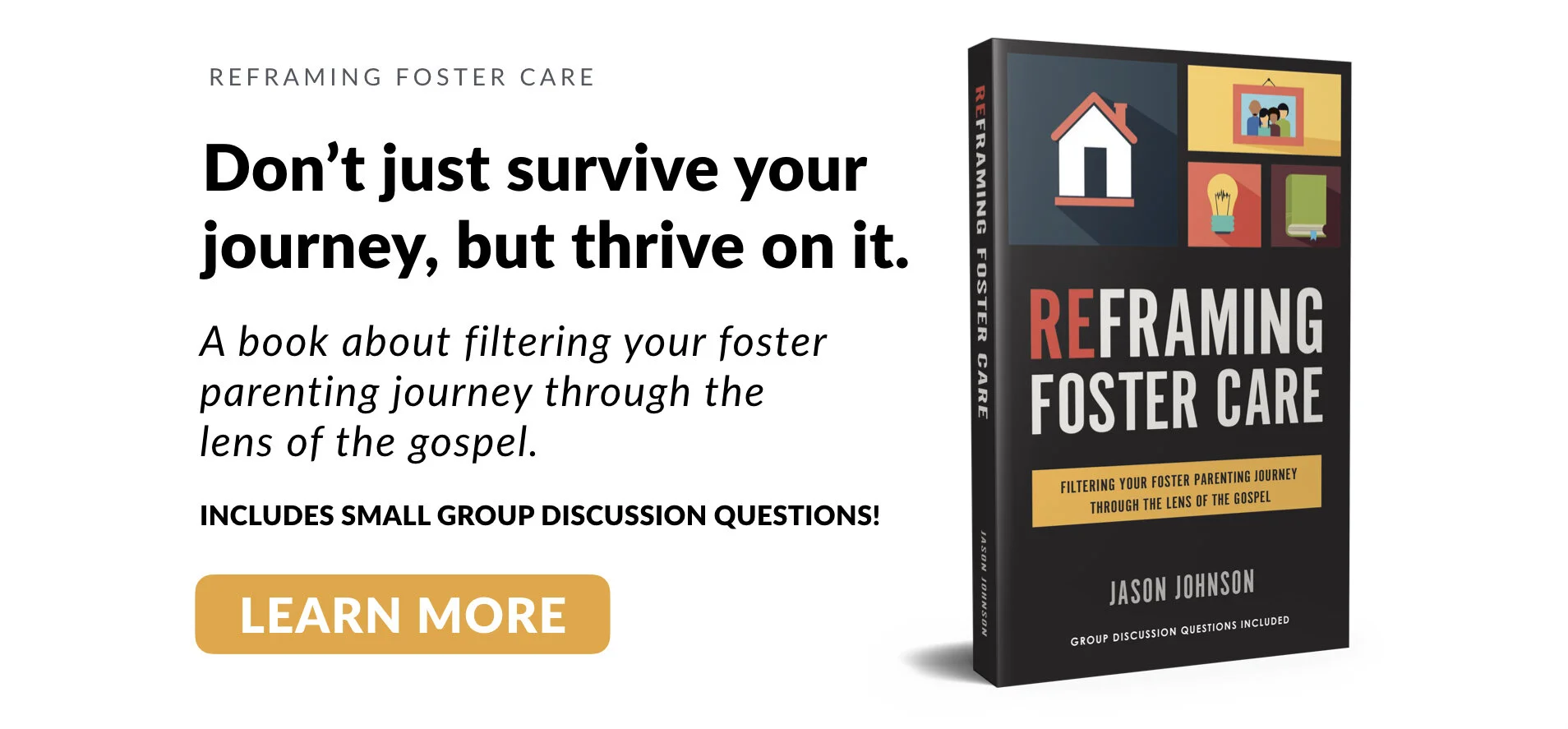Foster and Adoptive Parents: God is using you to love in some of the hardest places and through some of the most difficult situations. In the midst of all the uncertainties and unknowns that surround what you're doing there are some powerful promises and truths for you that are constant and sure and worthy to be reminded of. Here's just a few...
1. You are not alone.
Psalm 46:1 reassures us that, "God is our refuge and strength, an ever-present help in trouble." He is an always present, always attentive, always engaged God. He weeps over our mourning and sings over our joys. He meets us in our weakness and reminds us in our weariness that He has been there before us and He is there with us now - sympathizing, holding, understanding and encouraging. One of the most profound and tangible ways God reminds us of His nearness is by surrounding us with people who love us and support us. His closeness is evidenced in the faces of those around you who refuse to let you walk this road alone. In the beautiful, sacrificial, redemptive work you are doing of laying yourself down for the sake of these kids, know that you are not alone – you are never alone.
2. You can’t see everything.
We are not merely participating in a broken human story but in a fractured spiritual one as well. We may see signs, but not the whole; shadows, but not the substance of everything that God’s really doing. We do not grade the whole on what we see only for a moment. There’s much more going on than that. It's in that tension of the unseen that Scripture encourages us to "fix our eyes not on what is seen, but on what is unseen, since what is seen is temporary, but what is unseen is eternal." (2 Corinthians 4:18) You may not see it now - you may not ever even see it in this lifetime - but what you are doing is of eternal significance. Fix your eyes there.
3. It’s worth it.
The Bible never promises that following Jesus will be easy; it does, however, absolutely guarantee that following Him will be worth it. Galatians 6:9 encourages us to "...not become weary in doing good, for at the proper time we will reap a harvest if we do not give up." The good news of the gospel in foster care and adoption is that, in the end, Jesus wins, even if along the way we wonder why we're doing this and if we can handle it anymore. What you are doing is not in vain. Will it be hard? Absolutely. Will it be worth it? Most definitely. You are cultivating a harvest in the lives of these kids and families that is far greater and more bountiful than anything you could possibly imagine. Do not give up in doing good.
4. Self-care is not self-ish.
It’s okay to not be okay sometimes – it’s just not okay to stay that way. Sometimes the most spiritual thing you can do is read a good book, hire a babysitter, go to counseling, spend a care-free evening out with friends or just take a nap. No one wins if you lose yourself. Everyone wins if you’re healthy, whole and regularly taking steps to attend to those deep, inner life things that bring you fulfillment, healing and refreshment. Self-care is not selfish; it's spiritual. It's one of the bravest, most difficult yet profoundly important things you can do along your foster care and adoption journey.
5. Your weakness is powerful.
Your brokenness is not a sign of failure, but an outcome of faithfulness. Jesus knows exactly how that feels. Your struggle isn’t a sign of weakness, lack or incapacity but an expression of faithfulness. It shows that you care, even when it’s hard. And your exhaustion is a sign not of defeat but of an overflow of faithfulness. It means that you’re giving all so that a child might gain much—and that’s remarkable. Through what appears to be your weakness Christ is making His strength abundantly known. Paul understood this, declaring in 2 Corinthians 12:9–10, “I will boast all the more gladly in my weaknesses, so that the power of Christ may rest upon me. . . . For when I am weak, then I am strong.” He flips the script on how we’re to understand our weaknesses. The world urges us to conceal or camouflage them, to avoid them and not to acknowledge or talk about them. Yet, far from expressing embarrassment or even frustration Paul boasts about them. Why? Because far from being a source of shame they’ve become for him a platform upon which to showcase the power of God. Weakness isn’t for us as Christians a road to avoid but the very pathway through which God has chosen to put His capacity to bring great beauty out of tragic brokenness on display.
6. Yes, you are a little bit crazy.
You’re swimming upstream from most everything else around you. While the world says do everything you can to avoid hard and difficult things, you’re intentionally nose-diving right into them. While the world says pursue comfort and safety at all costs, you’re purposefully enduring great cost so others might know comfort and safety. While the world says insulate and isolate your kids from the brokenness of the world around you, you are welcoming that brokenness into your family and providing it a safe and loving place to call home. You are flipping the script on everything that is expected and normal – and it’s beautiful. There’s nothing wrong with you if you feel a little bit crazy; as a matter of fact, that probably means there’s something very, very right with you!
7. You don’t have to be the savior.
The gospel frees us from the burden to carry the weight of redemption that only Jesus intended for Himself to be crushed under. It reminds us only He can save and restore. Be free from the pressure to be or do anything for these kids or families that only Jesus expected Himself to be or do. Your job is not to save them; it's simply to love them as your Savior has loved you – fully, freely and faithfully – and to trust Him with the rest.
RELATED POSTS
Five Responses to Common Things Often Said to Foster Parents
Surprised by Foster Care: Five Ways It's Not What I Thought It Would Be
Five Powerful Truths in Scripture Every Foster Parent Must Know
To Foster and Adoptive Parents: Reframing Your Season of Struggle
Ten Unique Ways Your Church Can Get Involved with Foster Care


